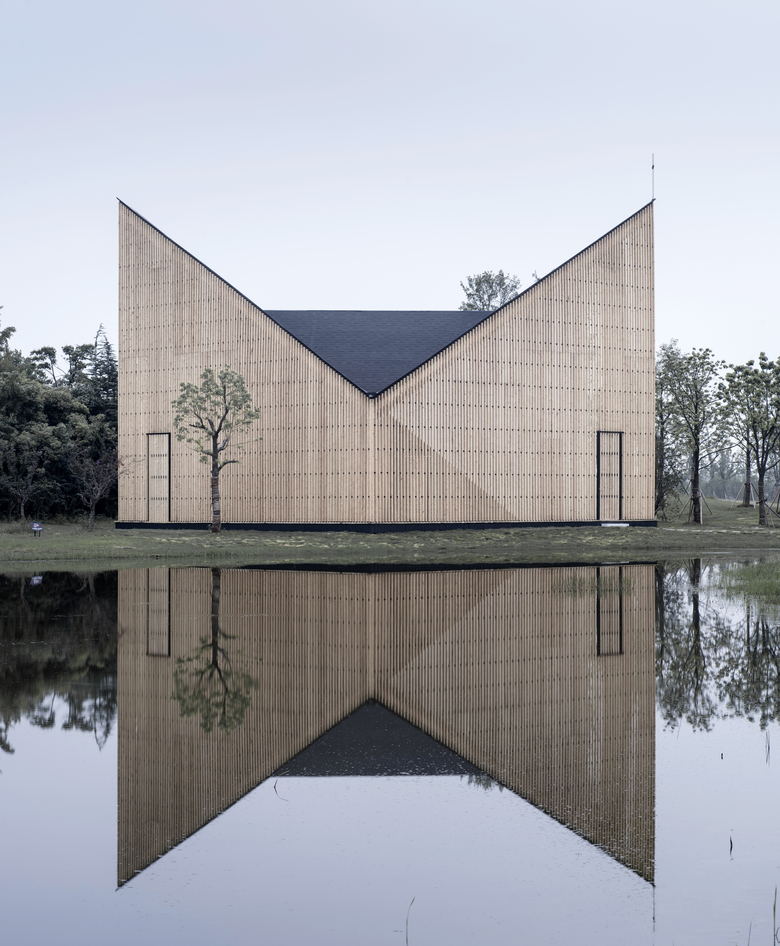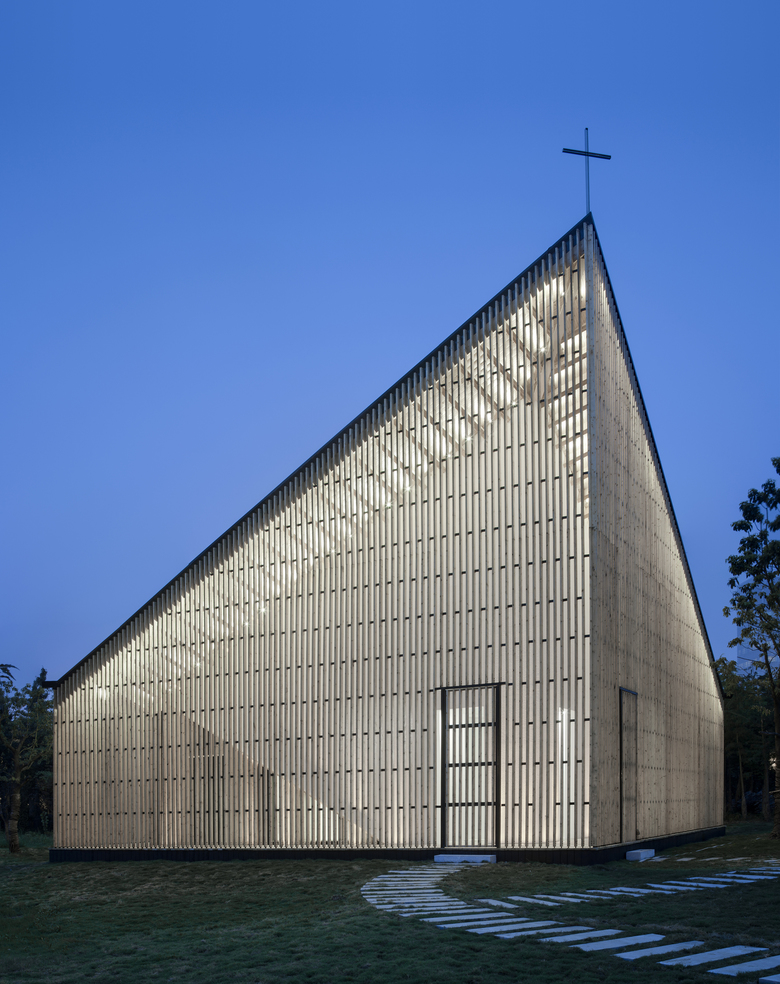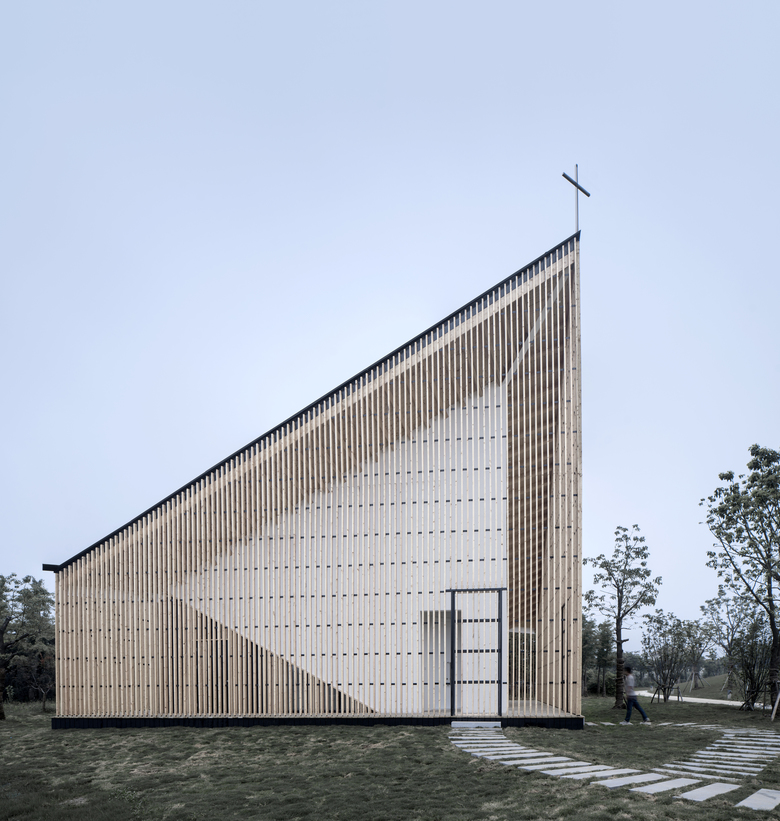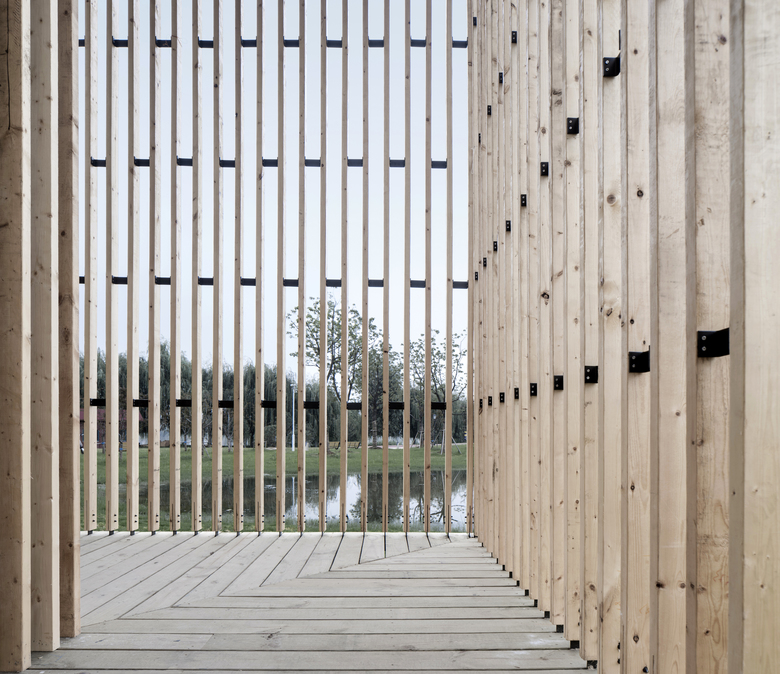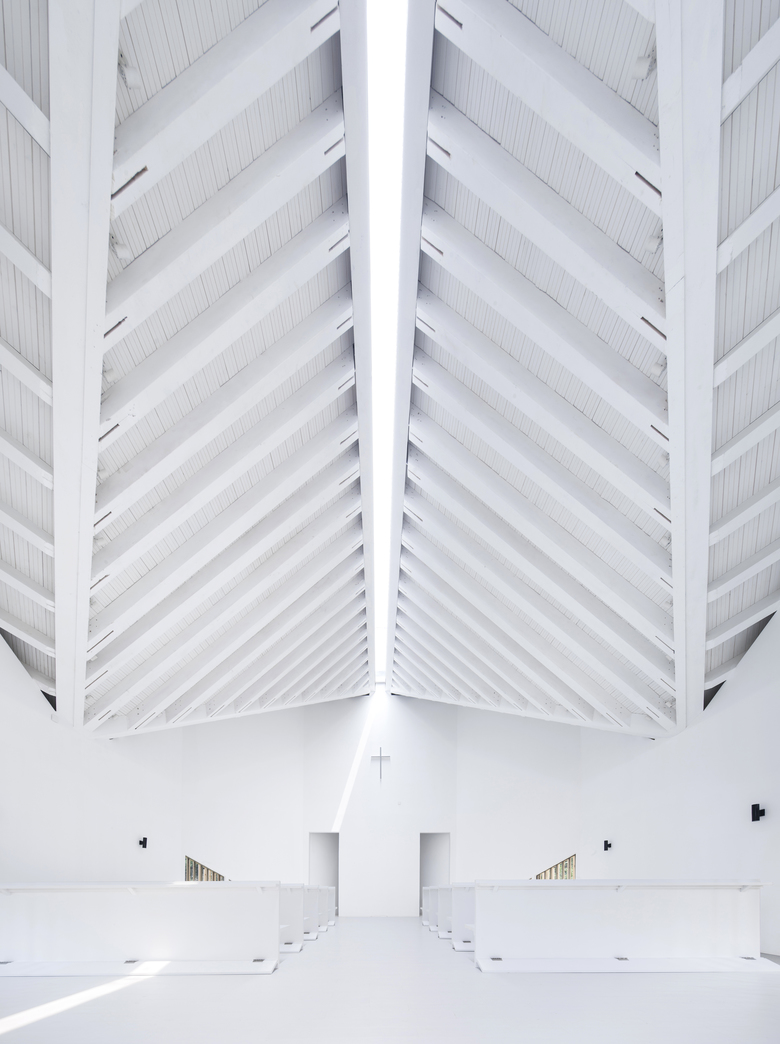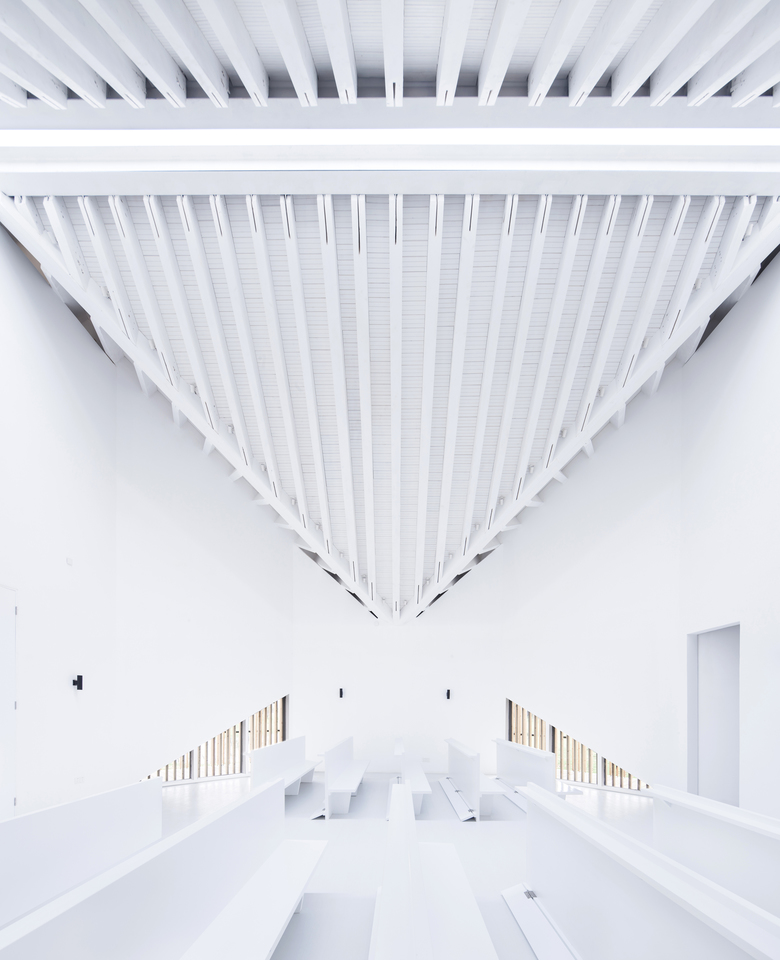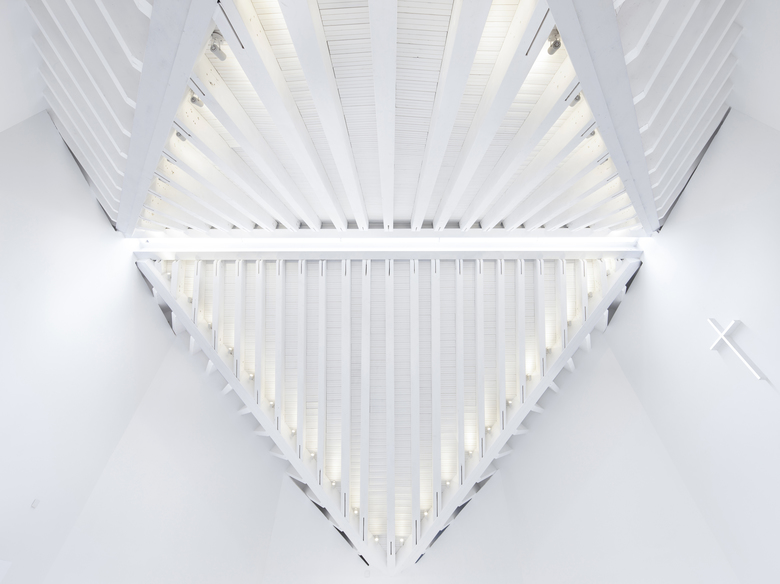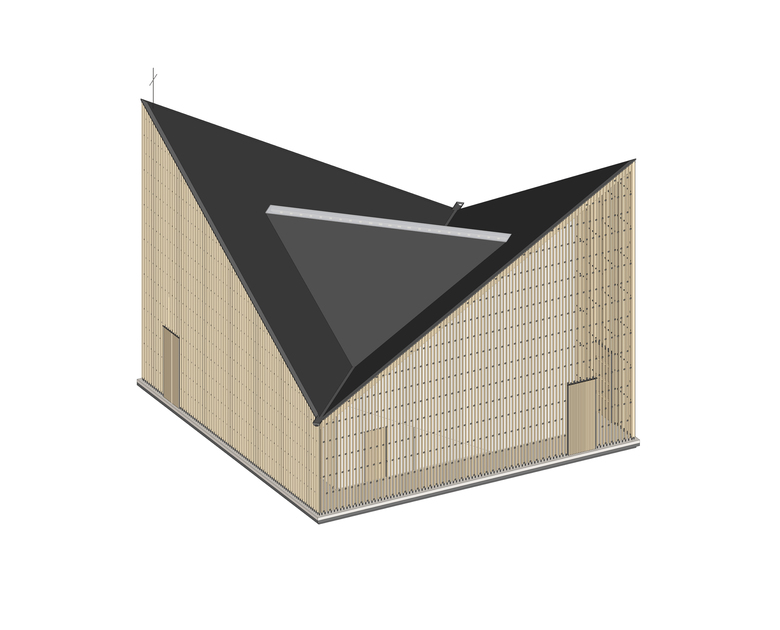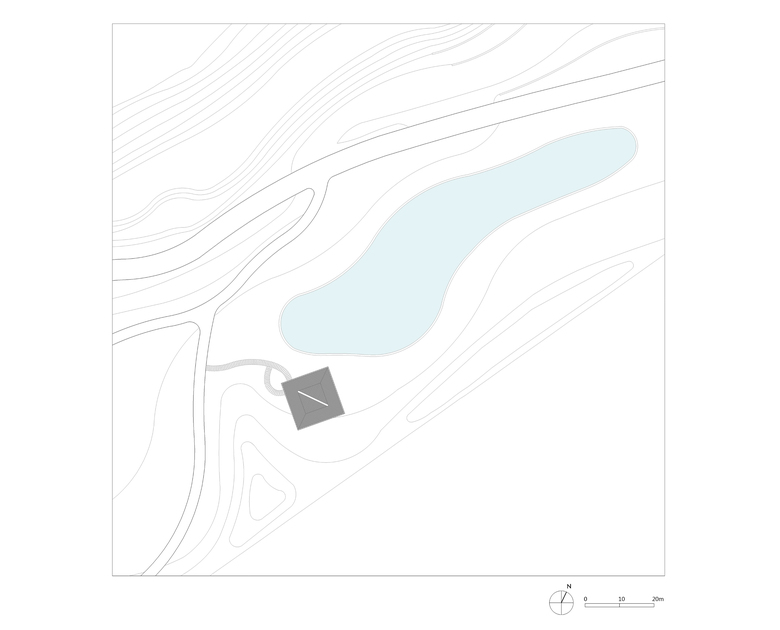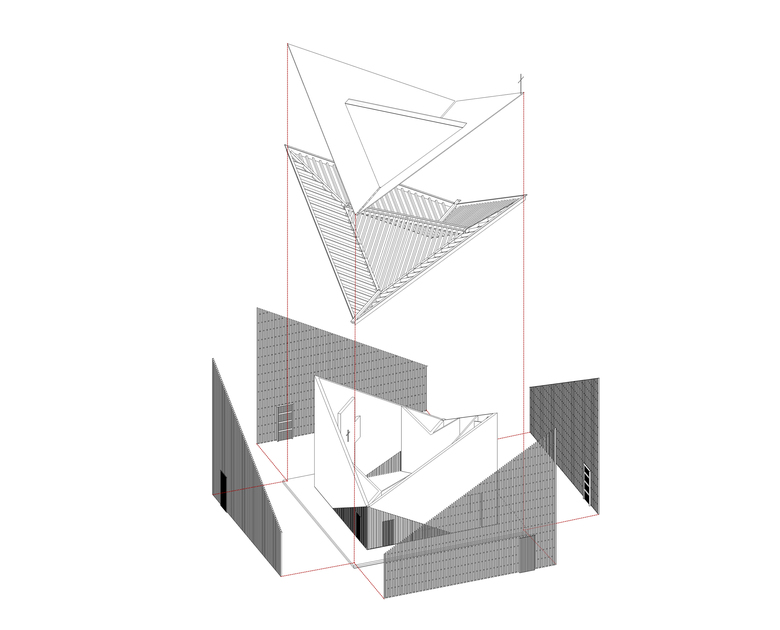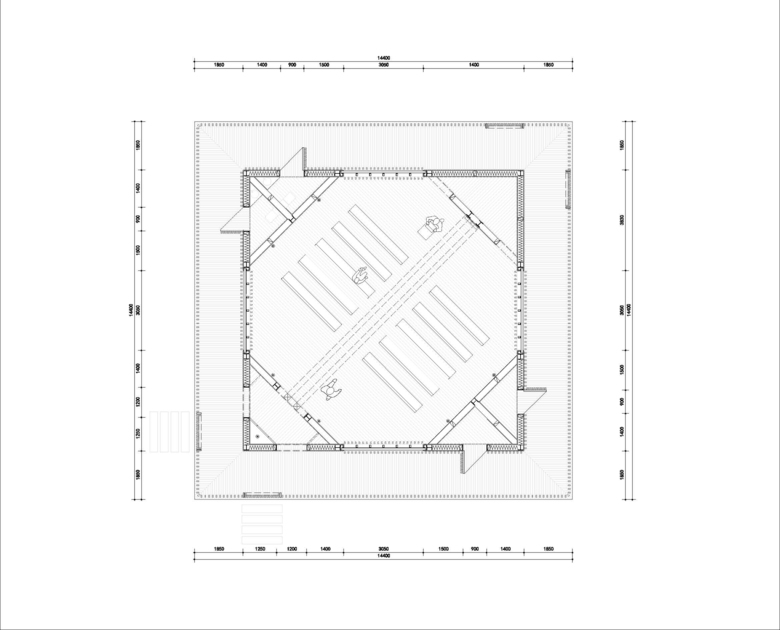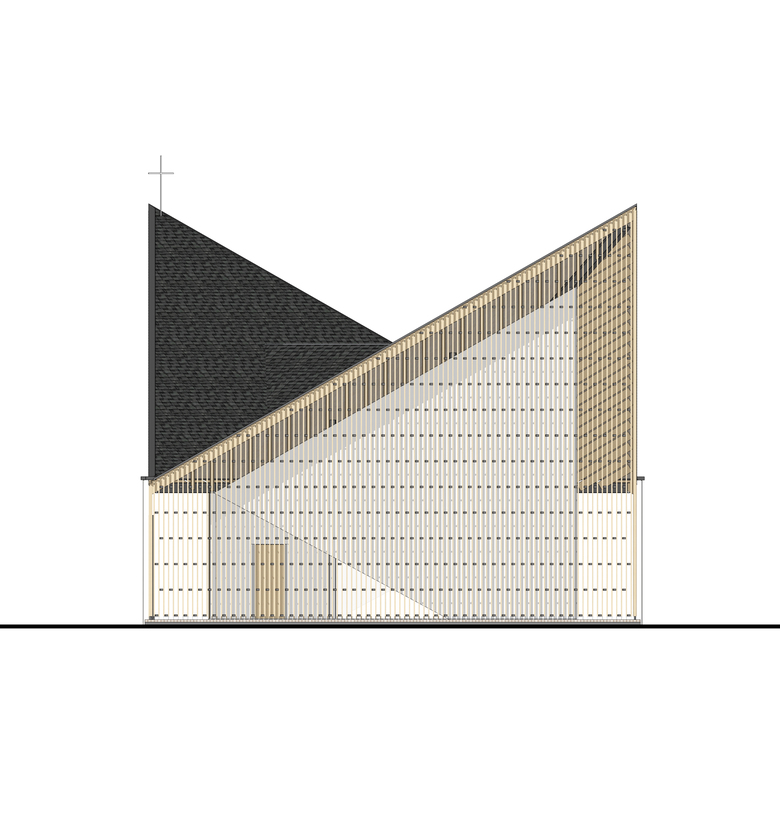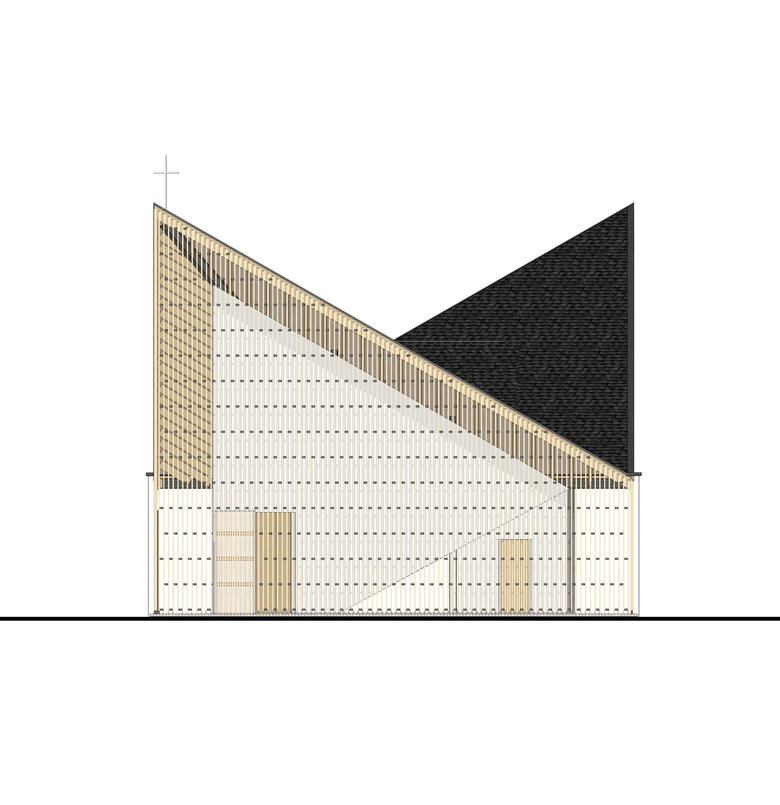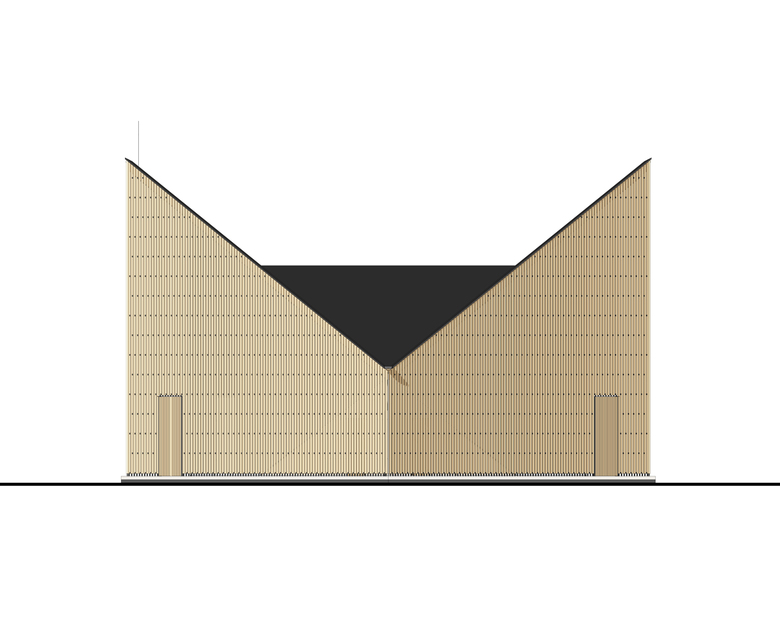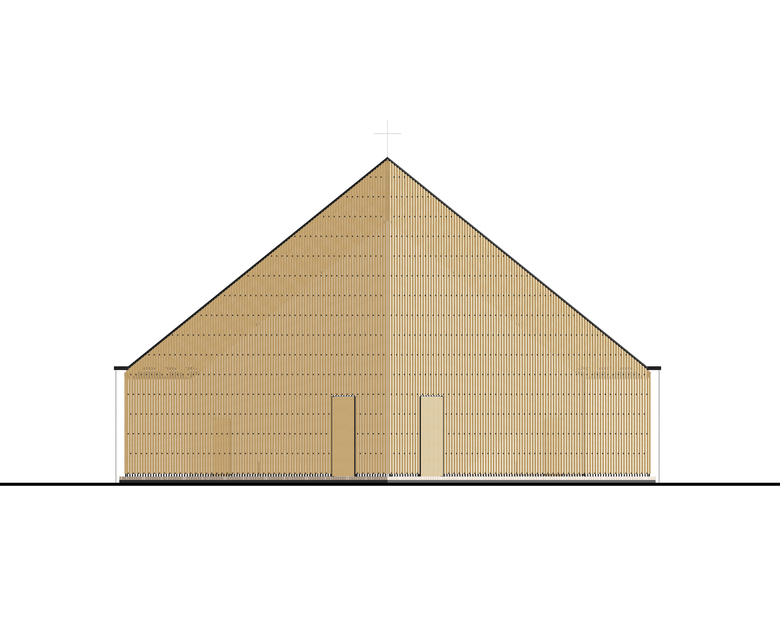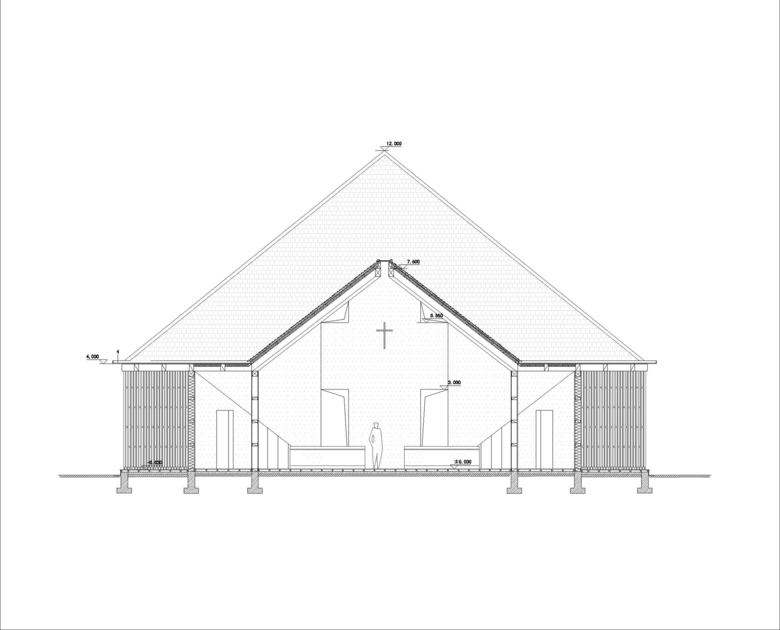Nanjing Wanjing Garden Chapel
Nanjing
- Architects
- AZL Atelier Zhanglei
- Localització
- Nanjing
- Any
- 2014
- Equip
- Zhang Lei, Wang Ying, Jin Xin, Cao Yongshan, Hang Xiaomeng, Huang Longhui
- Construction Drawing Design
- ADI-NJU
The project - a 200 square meter small chapel, is located in Wanjing Garden along Nanjing’s Riverfront. Hosted by priests from Nanjing Union Theological Seminary, it supports religious activities like worship and wedding services. This wood and steel structured chapel has gentle exterior shape as well as strong interior space infused with mysterious religious power. Its plain material doesn’t fail in expressing the delicate construction logic.
The earliest and fundamental church space has two interrelated tendencies- Center and depth. Both the centrality from the Pantheon and the deep axis of the Basilica was inherited in the early Christian Architecture. The central and axial symmetry of church space became less prominent during the Modernism period, which was closely related to the Protectants’ rejection of Catholic Hierarchy. In the design of Wanjing Garden Chapel, the architect didn’t purposefully reject the “centrality” and “depth” of classical space sequence. In plan, it has an octagonal central hall surrounded by square shaped corridors. In section, the use of roof profile and the long slit of skylight amplify the depth of space and emphasize on the high point over the sacred space where all axis meet.
The wooden corridor forms a unique double shell of the central hall space. The inner shell is more closed, leaving natural light to penetrate only through openings on roof and walls. The outer shell, composed of delicate SPF strips, serves as a filter of the view outside, implying the start of a religious spatial experience. The double shell system creates a uniquely interesting oriental architectural space that’s different from the “closeness” of traditional stone chapel, or the “openness” of modern architecture. The small chapel has a perfectly square shaped plan. Even with the 45-degree turning connecting inner space to exterior structure, the square remains highly integrated, symmetrical and center oriented. Hidden diagonal axis in the plan also extends to the roof structure, realizing a complete integrity of space, material and power.
“…God is light, and in him is no darkness at all.”
- 1 John Bible
“Light” is an important theme in the religious expressions of church space. In this particular design, light falls through the strip skylight right above the axis of alter into the center of the hall, and also penetrate from behind the holy cross on the alter wall. The presentation of this 300 mm wide light strip is the most powerful defining element of the interior space. Other natural light comes gently through the wood strips into the openings on the wall.
“Light”construction strategy is a wise choice under tight project schedule and limited budget. Roof structure, in accordance with the “cheap” material- natural light, adds expressiveness to the entire space. All interior surfaces are painted white, emphasizing the leading role of light and space. The exterior wood strips and asphalt shingles are left in their natural color, emphasizing the importance of nature. The SPF strips surrounding the church are so delicate that their length-to-radius ratio could be 1:120, largely exceeding the normal load bearing. With length as long as 12 meters and section area only 38*89 mm, the strips are connected to the roof and ground by metal parts at both ends, keeping them in their ideal stretching status. Adjacent wood strips are also connected with U-shape metal parts to insure stability. These together achieved a metal-wood structure that’s extremely simple in material selection and installation.
As a religious institution with very simple functions, this small chapel has its overly “ideal” space that couldn’t attribute to any particular style, but “the nature that tolerates all.”
Projectes relacionats
Revista
-
Reusing the Olympic Roof
hace 1 dia
-
The Boulevards of Los Angeles
hace 2 dies
-
Vessel to Reopen with Safety Netting
hace 2 dies
-
Swimming Sustainably
hace 3 dies
-
A Trio of Immersive Artworks at Coachella 2024
hace 3 dies
